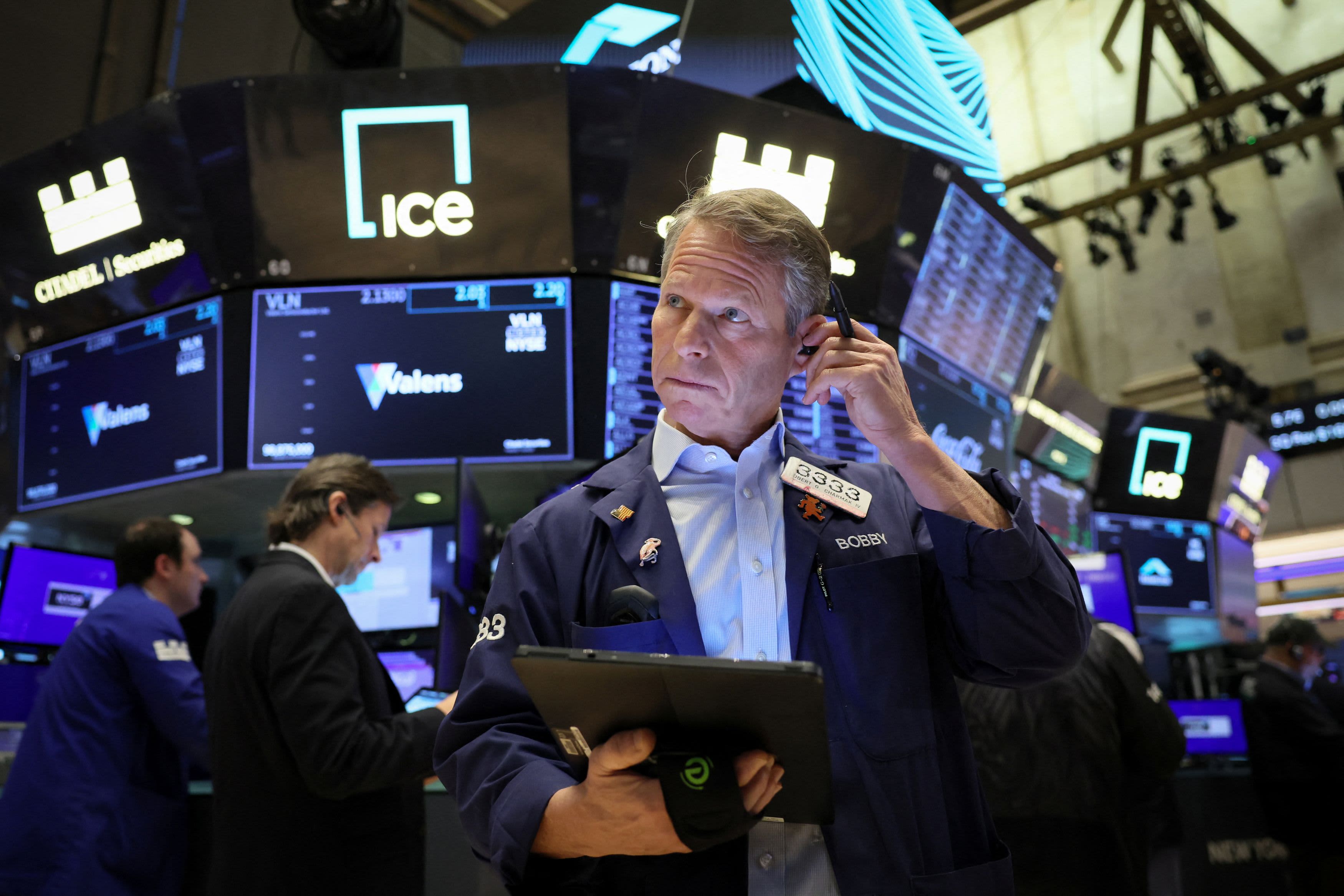Traders work on the floor at the New York Stock Exchange (NYSE) in New York City, U.S., November 16, 2023.
Brendan Mcdermid | Reuters
This report is from today’s CNBC Daily Open, our new, international markets newsletter. CNBC Daily Open brings investors up to speed on everything they need to know, no matter where they are. Like what you see? You can subscribe here.
November breather
U.S. stocks ended Thursday mixed, with the Dow Jones Industrial Average, the only major index to fall, snapping a four-day winning streak. The pan-European Stoxx 600 index fell 0.72%. Oil and gas stocks fell 2.7%, leading losses. Meanwhile, shares of Hotel Chocolat soared 160% after U.S. food giant Mars said it’ll buy the British chocolatier for £534 million ($662 million).
No silver lining
Alibaba isn’t going to list its cloud division as a separate and publicly traded company, backtracking on a plan it announced in May. The Chinese e-commerce giant blamed U.S. chip export restrictions for creating “uncertainties for the prospects of Cloud Intelligence Group.” U.S.-listed shares of Alibaba plunged 9.14% on the news. But Alibaba still intends to list its Cainiao arm, a logistic division, in Hong Kong.
The everything store
Amazon will allow auto dealers to sell cars on its site starting next year, kicking off with a partnership with South Korean automaker Hyundai. As part of the deal, Amazon’s Alexa voice assistant will come with Hyundai’s cars starting 2025. Shares of used car dealers backtracked following the announcement. (No word yet on whether the cars will be eligible for Amazon’s same-day delivery, though.)
Gala dinner with Xi
After meeting with U.S. President Joe Biden, Chinese President Xi Jinping attended a dinner Wednesday night with nearly 400 business leaders. Among the guests were Apple CEO Tim Cook, Tesla chief Elon Musk and Blackstone’s Steve Schwarzman. In a speech at the dinner, Xi said the U.S. and China can be adversaries or partners — with no middle ground.
[PRO] ‘Ozempic effect’
A new class of anti-obesity drugs, known as GLP-1 drugs, has proven so effective it’s sending shockwaves through the market. One analyst even predicted airlines could save millions because of passengers who weigh less. It stands to reason, too, that the gym industry would suffer from the “Ozempic effect.” On the contrary, it could be a benefit to gyms, according to analyst and gym owners.
More evidence that inflationary pressures are easing: Weekly jobless claims rose more than expected last week; import prices dropped 0.8% for the month, against the expected 0.3%; U.S. oil prices fell 5%. Walmart CEO Doug McMillon even thinks prices of some grocery items might “deflate in the coming weeks and months.”
Despite that, stocks had a lackadaisical day, making slight moves in both directions without conviction. The S&P 500 inched up by 0.12% and the Nasdaq Composite ticked higher by 0.07%. But the Dow Jones Industrial Average slipped 0.13% to end four consecutive sessions of gains.
Investors may be getting the note they were a tad too optimistic about the possibility of rapid rate cuts by the Federal Reserve, and that inflation will fall below 2% without the economy going into recession.
BTIG analyst Jonathan Krinsky thinks a recession might be incoming. Signs of a hard landing include “ slowing macro data, company-specific commentary, and persistent weakness of the average stock,” he wrote. Krinsky also warned that stock rallies tend to happen before a recession shows up.
Meanwhile, Cleveland Federal Reserve President Loretta Mester told CNBC she isn’t fully convinced by this week’s economic data. “We’re going to have to see much more evidence that inflation is on that timely path back to 2%.”
To that end, Mester doesn’t see rate cuts on the horizon. On the contrary, she remains open to rate hikes. “My feeling is that it’s really not about cutting rates. It’s really about how long do we stay in a restrictive stance and perhaps have to go higher given what happens in the economy,” she said.
In sum, neither of those scenarios is pretty. That’s not to say a soft landing is completely out of the picture. In a speech in San Francisco, Fed Governor Lisa Cook said “a soft landing is possible.” But, like everything else in markets, “it is not assured.” Perhaps investors shouldn’t be so sure about impending rate cuts too.

